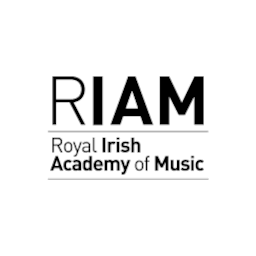21 Best Universities & Colleges in Ireland for International Students (2026)
Degree
Country
Upto 3 countries can be added
Location
Can't set location for multiple countries
Courses
Select upto 3 courses
Average Tuition Fee (USD)
Select course first
Partner Benefits
University Type
University Rank
GRE Waiver
21 results found

Trinity College Dublin
Leinster • Ireland
QS Ranking
75
Avg. Tuition Fees
$15k - $149k
Courses Offered
Deadline
Fall, Jan 30, 2026

University College Dublin
Dublin • Ireland
QS Ranking
118
Avg. Tuition Fees
$11k - $193k
Courses Offered
Deadline
Fall, Jul 1, 2026
🎓 Not sure which college is right for you?
Use our College Finder Tool to get personalized matches based on your goals, budget, and preferences.
95% matched in under 3 minutes
Which degree do you want to study?
I want to do
Bachelors
I want to do
Masters/MBA
Select one of the options to get started

University College Cork
Cork • Ireland
QS Ranking
246
Avg. Tuition Fees
$19k - $102k
Courses Offered
Deadline
Fall, Jan 16, 2026

University of Galway
Connacht • Ireland
QS Ranking
284
Avg. Tuition Fees
$16k - $114k
Courses Offered
Deadline
Fall, Sep 7, 2026

University of Limerick
Munster • Ireland
QS Ranking
401
Avg. Tuition Fees
$4k - $89k
Courses Offered
Deadline
Fall, Jul 1, 2026

Dublin City University
Dublin • Ireland
QS Ranking
410
Avg. Tuition Fees
$5k - $78k
Courses Offered
Deadline
Spring, Jan 12, 2026

Maynooth University
Leinster • Ireland
QS Ranking
771-780
Avg. Tuition Fees
$15k - $84k
Courses Offered
Deadline
Fall, Jun 30, 2026

Technological University Dublin
Dublin • Ireland
QS Ranking
781-790
Avg. Tuition Fees
$12k - $63k
Courses Offered
Deadline
Fall, Sep 1, 2026

Waterford Institute of Technology
Waterford • Ireland
QS Ranking
-/-
Avg. Tuition Fees
$11k - $55k
Courses Offered
Deadline
-/-

Royal College of Surgeons in Ireland
Dublin • Ireland
QS Ranking
-/-
Avg. Tuition Fees
$62k - $62k
Courses Offered
Deadline
-/-

Institute of Technology Carlow
Carlow • Ireland
QS Ranking
-/-
Avg. Tuition Fees
$12k - $63k
Courses Offered
Deadline
-/-

Dundalk Institute of Technology
Louth • Ireland
QS Ranking
-/-
Avg. Tuition Fees
$14k - $19k
Courses Offered
Deadline
Fall, May 1, 2026

National College of Art and Design
Dublin • Ireland
QS Ranking
-/-
Avg. Tuition Fees
$16k - $22k
Courses Offered
Deadline
-/-

Athlone Institute of Technology
Westmeath • Ireland
QS Ranking
-/-
Avg. Tuition Fees
$16k - $17k
Courses Offered
Deadline
-/-

Royal Irish Academy of Music
Dublin • Ireland
QS Ranking
-/-
Avg. Tuition Fees
$21k - $21k
Courses Offered
Deadline
-/-

Letterkenny Institute of Technology
Letterkenny • Ireland
QS Ranking
-/-
Avg. Tuition Fees
$15k - $15k
Courses Offered
Deadline
-/-

National College of Ireland
Dublin • Ireland
QS Ranking
-/-
Avg. Tuition Fees
$12k - $43k
Courses Offered
Deadline
Spring, Jan 19, 2026

Dublin Business School
Dublin • Ireland
QS Ranking
-/-
Avg. Tuition Fees
$11k - $22k
Courses Offered
Deadline
Spring, Jan 12, 2026

Limerick Institute of Technology
Limerick • Ireland
QS Ranking
-/-
Avg. Tuition Fees
$15k - $54k
Courses Offered
Deadline
-/-

Griffith College, Dublin
Dublin • Ireland
QS Ranking
-/-
Avg. Tuition Fees
$13k - $52k
Courses Offered
Deadline
Term 2, Feb 3, 2026